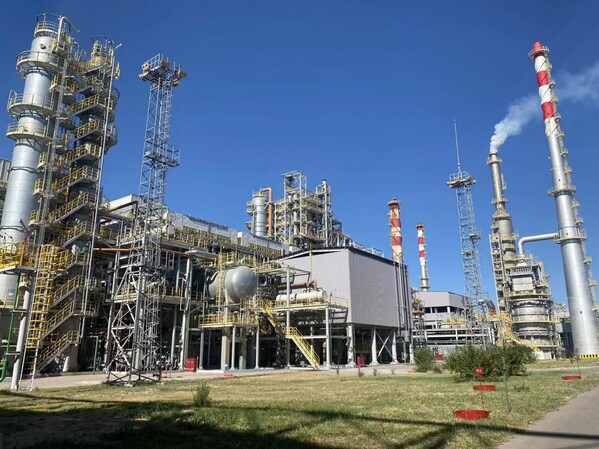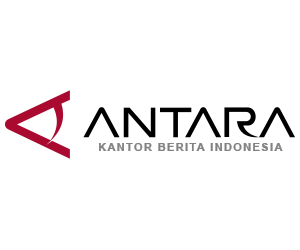China, Kazakhstan make solid progress in economic, trade cooperation
Beijing, (ANTARA/PRNewswire)- A report from People's Daily: Kazakhstan is the place where China first proposed the initiative of jointly building the Belt and Road. In recent years, under the strategic guidance of the heads of state of both China and Kazakhstan, the two countries have achieved remarkable results in their cooperation.

Allur, acquired and restructured by a Chinese company, is the largest automotive manufacturing and assembly enterprise in Kazakhstan. Photo shows vehicles parked at a production base of Allur, waiting to be distributed to different regions in Kazakhstan. (Photo by Zhao Yipu/People's Daily)
They have successfully implemented multiple Belt and Road cooperation projects, deepened and intensified economic and trade cooperation, effectively promoting the common development of both countries and continuously benefiting the two peoples.
At the border between China and Kazakhstan, refrigerator trucks were passing through the Khorgos highway port. Thanks to a "green channel" for quick customs clearance of agricultural products, it now takes only an hour for cargos to complete customs clearance from being loaded onto trucks.
Today, many young consumers in Kazakhstan have Chinese e-commerce apps installed on their smartphones. They told People's Daily that shopping with these apps is both convenient and affordable.
China and Kazakhstan are bound together by mountains and rivers. Having highly complementary economies, they are natural partners.
China is Kazakhstan's largest trading partner, with bilateral trade covering various sectors including energy and agricultural products. In 1992, the trade volume between the two countries stood at $368 million. As of 2023, the number reached $41.02 billion, surpassing the target of reaching $40 billion by 2030 set by the leaders of both countries.
With the increasingly closer trade relations between China and Kazakhstan, more and more Kazakh products are entering the Chinese market.
Last year, a "national pavilion" of Kazakhstan was launched on a Chinese e-commerce platform, allowing Chinese consumers to buy Kazakh specialties such as nuts, camel milk powder, and safflower seed oil with just taps on their phones.
Kazakhstan has participated in the China International Import Expo (CIIE) for six consecutive years, signing commercial agreements worth approximately $300 million. Kazakh companies are actively signing up to participate in this year's CIIE, with their exhibition space expected to expand fivefold.
Kazakhstan's Vice-Minister of Trade and integration Kairat Torebayev said Kazakhstan is willing to expand agricultural exports to China. He also pledged to enhance investment facilitation and continuously improve business environment to welcome more Chinese companies to invest in Kazakhstan.
On Feb. 28 this year, a China-Europe Railway Express train loaded with daily necessities, mechanical equipment, and new energy vehicles departed from Xi'an, northwest China's Shaanxi province. This train marked the official launch of the Kazakhstan Xi'an Terminal jointly built by China and Kazakhstan, a key outcome of the first China-Central Asia Summit.
Leveraging China-Europe Railway Express, the Kazakhstan Xi'an Terminal will facilitate rapid distribution of goods between China and Kazakhstan in Xi'an, and build itself into a trade and logistics hub for Kazakhstan in China.
According to an official with the Xi'an Chanba International Port, this terminal opens up a new artery for trade. It allows Kazakh goods to travel south to China's Guangxi Zhuang autonomous region and then into Vietnam, Thailand, Myanmar, and Laos, the official explained.
Kazakhstan is an important country for the China-Europe Railway Express. In 2023, over 13,000 China-Europe Railway Express trains transited through Kazakhstan, making a significant contribution to maintaining the stability of global industrial and supply chains.
In recent years, China and Kazakhstan have made great strides in developing transit transportation and international multimodal transportation, successfully building a comprehensive, multidimensional connectivity network that boasts seven pairs of year-round border crossings, five cross-border oil and gas pipelines, two cross-border railway trunk lines, and an international border cooperation center.
The two countries have also completed several landmark projects, including the China-Kazakhstan section of the Western Europe-Western China Highway, a joint logistics base in Lianyungang, and the dry port located in the Khorgos-East Gate special economic zone. These initiatives have significantly facilitated land-sea cross-border transportation between the two countries.
Energy remains a crucial area of practical cooperation between China and Kazakhstan. The two countries continue to deepen their partnership in oil and natural gas while actively expanding into new energy sectors like wind and solar power.
Chinese automakers such as JAC Motors and Yutong have entered the Kazakh market, boosting the development of the local new energy vehicle industry. Major projects built by Chinese companies, including the Zhanatas wind farm, the Turgusun hydropower plant, and the Akmola wind farm, are playing a vital role in Kazakhstan's green development efforts.
"The successful collaboration between Kazakhstan and China in green energy have brought valuable technology and experience to Kazakhstan," said Kazakh economist Almas Chukin.
Highlighting the expanding scope of cooperation between China and Kazakhstan, Chinese Ambassador to Kazakhstan Zhang Xiao said that the two countries have seen rapidly growing cooperation in emerging fields such as healthcare, cross-border e-commerce, digital economy, automobile manufacturing, and modern agriculture in recent years.
Within the framework of the Belt and Road Initiative, China and Kazakhstan will actively support the development of new business models like cross-border e-commerce and digital economy, accelerate the implementation of strategic cooperation projects and promote comprehensive development in areas including energy and mineral resources, metallurgy and chemical industry, infrastructure, logistics and transportation, equipment manufacturing, and agriculture and food production, so as to continuously inject new vitality into the economic and trade cooperation between the two countries.

Photo shows the Shymkent Oil Refinery in Kazakhstan, a key energy cooperation project between China and Kazakhstan under the Belt and Road Initiative. (Photo by Bai Ziwei/People's Daily)
Source: People's Daily


